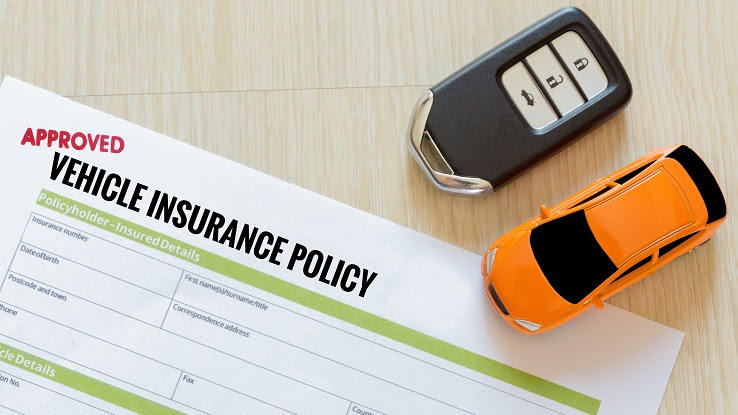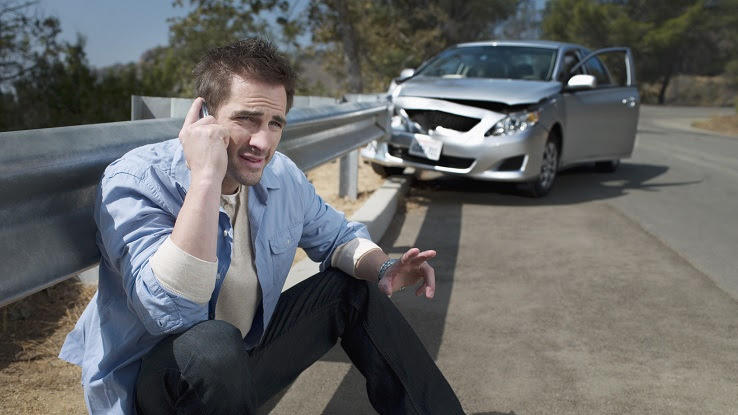After a Car Accident Do Drivers Exchange Insurance Policy

Applying for car insurance is a simple process, but each driver has plenty of decisions to make. To make the right choices, the driver needs to understand the minimum coverage they may be required to have by loan agreement or law. Next, the driver should understand the unique risks for themselves and their region. An insurance agent is often a great source for discussing these circumstances.

Car insurance is an agreement between an insurance company and a customer or policyholder. The policyholder is entitled to the specific benefits of the insurance policy. Car insurance can protect the policyholder from a variety of financial losses.
For example, car insurance can cover the value of a car that is damaged or stolen. Car insurance also protects the policyholder from financial loss as a result of liability. Car insurance may pay for the medical bills of a pedestrian that a policyholder struck with their car or pay to repay a car that the policyholder damaged in an accident.
Why Is Car Insurance Important?

For a majority of drivers, car insurance is mandatory. In all states (except for Virginia and New Hampshire) drivers are required to maintain minimum car insurance coverage to apply for a license and registration and utilize the roadways. If someone stops paying their auto loan, the lender will repossess the car as collateral. That is why auto lenders are interested in making sure any damage to a loanee's car can be repaired. So, many lenders also have minimum car insurance coverage standards that the owner of the car is contractually required to keep as long as they are still paying on their loan.
Even when it is not required, many drivers wisely choose to have car insurance. Depending on the type of coverage, car insurance protects drivers from damage to their cars and from the financial liability of damaging other property and people. Aside from a home, a car is often the most expensive possession a person owns, and, for people who live in cities without public transportation, having a running car is often directly tied to a person's ability to earn income and care for his or her basic needs. Every time a person enters the roadway, there is a risk. Another driver could hit their car and they could hit another driver. People who cause accidents can be held responsible for the medical costs of injured people and the cost of fixing any cars or other property damaged. Having car insurance helps absorb the cost of all of these risks.
What Does Car Insurance Cover?

There are different types of car insurance coverage, and there are coverage limit options for each type of coverage. The exact events covered by a specific car insurance policy will depend on the coverage types and coverage limits the policyholder has chosen.
Liability coverage cares for the cost that drivers incur when they damage property or injure people. Collision coverage pays for damage to the policyholder's car in the event of an accident. Comprehensive car insurance covers specific types of damage that do not occur in a car accident, such as hitting a deer or having a dented hood due to hail. Uninsured and underinsured motorist coverage pays for damages caused by a driver who either does not have insurance or does not have enough insurance to cover the damage they have caused. In addition to the main coverage types, add-on types of coverage can be built into an insurance policy. Some examples are coverage for tows or rental cars. Gap insurance is a special type of car insurance that will pay off an auto loan if a car is destroyed.
Each type of coverage that can be built into an auto insurance policy has a specific dollar limit. For example, a person's insurance policy can be made of $100,000 worth of collision coverage and $50,000 worth of comprehensive coverage. That means the insurance will pay a maximum of $100,000 for a collision and a maximum of $50,000 for a comprehensive coverage event, such as vandalism.
Car insurance can cover virtually every type of damage and liability that could result from having an auto loan and driving a car. The exact amount and types of coverage that an individual has are determined by the specific policy they agree to. Each individual should make careful selections when choosing car insurance to ensure that the policy they have adequately covers their needs.
Where to Get Car Insurance?

Car insurance can be provided by an insurance company that offers auto policies. There are some local insurance agencies that are affiliated with multiple insurance companies. These may be good options for customers who want to shop around. At these agencies, a person's basic information can be used to collect car insurance quotes from several companies at one time. Other local insurance agencies are affiliated with a single insurance company.
In addition to visiting a local insurance agency, people can also get car insurance from the comfort of their own homes. Local companies and national companies alike offer car insurance quotes via phone and online forms. Quoting and policy selection can happen completely online, and people can even sign contracts binding them to policies online.
Car Insurance Process – How to Prepare

Getting car insurance is a three-step process. First, supply the needed information to get a quote. Then, examine the quote and select the types of coverage and coverage limits you desire. Finally, sign the policy and wait for insurance cards to come in the mail.
To get a quote, a car owner will need to supply basic information about themselves and the car. These details include social security number, the reason for having the car, average distances traveled, mileage, year, make, model, and VIN.
Car Insurance FAQs

Does Car Insurance Apply Immediately?
Some car insurance policies are considered same-day insurance. That means the coverage starts on the same day that the policyholder signs the policy. Other types of car insurance start at a later date spelled out in the policy. A policyholder should make certain the effective date of the policy does not leave them with a gap between policies. People purchasing a new car should opt for same-day insurance.
How Can I Get Car Insurance Fast?
Getting car insurance online makes getting insurance fast possible. It is as simple as completing an application. There are a variety of companies that allow a car owner to get a quote, sign a policy, and start coverage within less than an hour. Most companies will require at least one month's payment to start coverage, but some do not require any payment. Be sure to choose a same-day insurance policy if speed is a concern.
Does an Older Car Cost More to Insure?
Older cars are often cheaper to insure for two reasons. First, the cost of the insurance policy is based on the potential cost the insurance company could have to pay to replace the car. Cars depreciate with each passing year. Since older cars are cheaper, the policies are usually cheaper. (Valuable antique or classic cars are the exceptions to this rule.) Auto lenders want their customers to have comprehensive and collision insurance. Many older cars are paid off, so a car owner may choose to drop comprehensive and collision policies and just have the minimum liability coverage required by the state of residence. This is also a factor that makes insuring an older car cheaper.
MORE FROM ASKMONEY.COM
After a Car Accident Do Drivers Exchange Insurance Policy
Source: https://www.askmoney.com/insurance/how-apply-car-insurance?utm_content=params%3Ao%3D1465803%26ad%3DdirN%26qo%3DserpIndex
0 Response to "After a Car Accident Do Drivers Exchange Insurance Policy"
Post a Comment